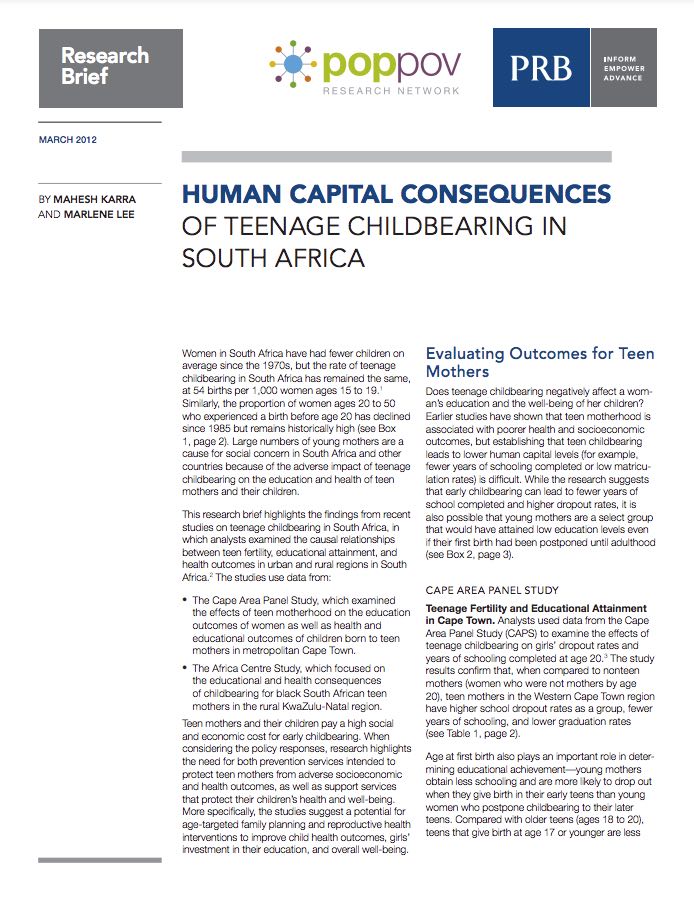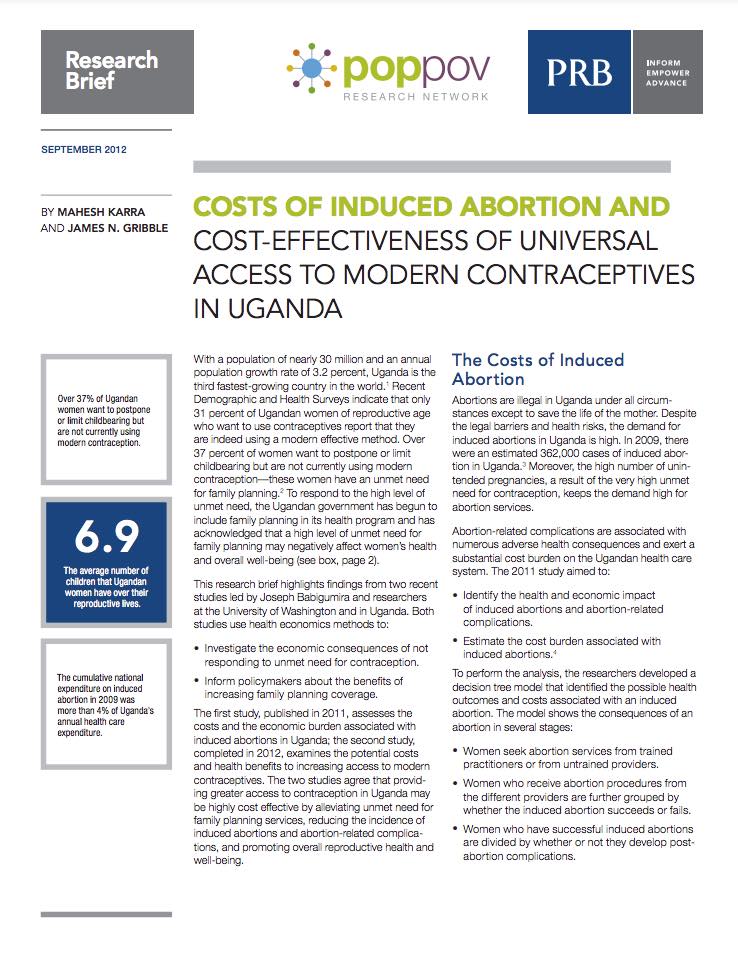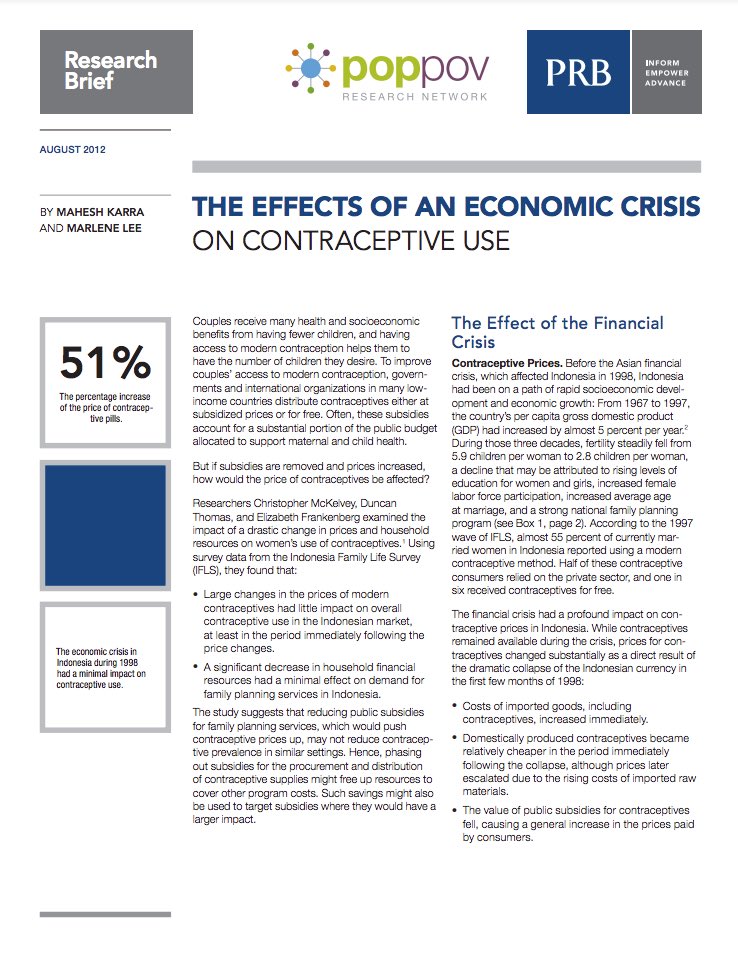139 Search Results Found For : "qtysp.space"

Human Capital Consequences of Teenage Childbearing in South Africa
(2012) Women in South Africa have had fewer children on average since the 1970s, but the rate of teenage childbearing in South Africa has remained the same, at 54 births per 1,000 women ages 15 to 19.

Costs of Induced Abortion and Cost-Effectiveness of Universal Access to Modern Contraceptives in Uganda
2012) With a population of nearly 30 million and an annual population growth rate of 3.2 percent, Uganda is the third fastest-growing country in the world. Recent Demographic and Health Surveys indicate that only 31 percent of Ugandan women of reproductive age who want to use contraceptives report that they are indeed using a modern effective method.
Climate Change, Health, and Population Dynamics: A View From Tanzania
As people around the world celebrate the remarkable Paris Agreement to address climate change, there’s a genuine opportunity for countries to act on their financial pledges to help the world adapt to climate change—especially people in developing countries who are most vulnerable.
PRB Discuss Online: Finding Ways to Improve Child Health
(2008) Each year, nearly 10 million children die, mostly from preventable and treatable causes. Millions of children in low-income countries suffer from long-term illnesses, malnutrition, and injuries that limit their life options. What can we do to improve children's health and save lives in low-income countries? What are the links to mother's health?

Project: Population and Poverty (PopPov) Research Network

